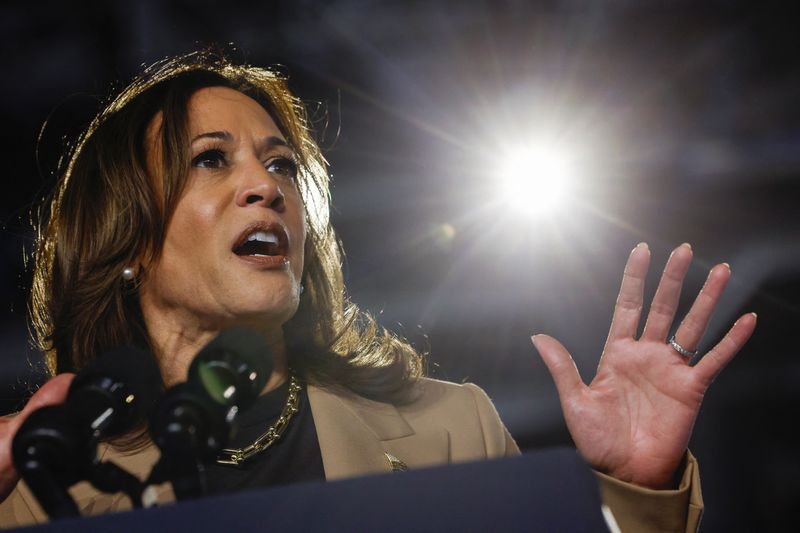In a strategic move to energize support from Black men ahead of the upcoming presidential election, Democratic candidate Kamala Harris recently unveiled a set of new policy proposals aimed specifically at addressing the challenges faced by this demographic. Understanding the significance of Black male turnout in past elections, including the critical 2020 race where 80% of Black male voters supported President Joe Biden, Harris’s campaign seeks to directly engage Black men, who have begun showing wavering support for Democrats. With a growing number of young Black men indicating potential support for Republican candidate Donald Trump, the urgency of Harris’s initiatives becomes clear as part of a broader effort to solidify support within the Black community.
Among the key policy proposals Harris introduced are plans for 1 million forgivable small business loans of up to $20,000 targeted at entrepreneurs in underserved communities. This initiative reflects a commitment to providing economic opportunities to Black men and fostering entrepreneurship. Additionally, Harris promised to legalize recreational marijuana, providing an accessible framework for Black entrepreneurs to participate and benefit from this emerging industry. By prioritizing these economic proposals, Harris aims not only to connect with Black men but also to emphasize their broader importance to her campaign and the overall electorate.
Beyond economic initiatives, the proposals include enhancing access to the cryptocurrency space for Black Americans and launching a national health equity initiative specifically focused on addressing issues such as sickle cell disease, which disproportionately affects the Black community. This multifaceted approach illustrates Harris’s commitment to comprehensive support for Black men, addressing their economic, health, and community needs while aiming to resonate with a wider audience. The policies showcase her dedication to empowering underserved communities while also emphasizing that such efforts can yield benefits for all men, thereby broadening potential appeal.
As Harris seeks to bolster her support, she faces criticism regarding the relatively lukewarm response from Black male voters, creating concerns within the Democratic Party. While some view the lack of support as a major vulnerability in her campaign, others argue that this bloc is being unfairly blamed for broader challenges affecting the election strategy. The discontent among young Black men is evident, with a recent NAACP poll revealing that over a quarter of them are inclined to support Trump, signaling a shift in the political landscape that Harris must navigate carefully.
The timing of Harris’s policy rollout is significant, as it coincides with her forthcoming appearance on a popular radio show hosted by Charlamagne tha God, a well-known figure among Black millennials and a vocal critic of the current administration. This opportunity allows her to address the new initiatives directly to an influential audience, potentially swaying opinions and enhancing her visibility within a critical demographic. As she prepares to travel to Erie County, Pennsylvania, to engage with constituents, the messaging surrounding her proposals will play a key role in shaping her narrative and rallying support.
The implications of Harris’s policy announcements extend beyond the immediate electoral stakes. By directly addressing the needs of Black men through targeted proposals, she seeks to create a compelling case for her candidacy that resonates with a vital segment of the electorate. With the election day drawing closer, Harris’s ability to connect with this demographic and translate these policy initiatives into tangible support could prove pivotal in her bid for the presidency, particularly as she positions herself as a candidate committed to fostering equity and opportunity for all. This strategic engagement emphasizes her intent not only to win votes but to create a lasting impact on the communities she seeks to serve.

